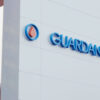An American oncology expert has highlighted the importance of clean energy initiatives in the fight against lung cancer. Nuclear, solar and other emission free technologies are of the utmost importance.
In an article this week, Dr. Joan Schiller explained that cases of the respiratory disease, particularly in young women, have been rising an at an alarming rate.
She believes phasing out fossil fuels is the key to solving this problem and saving lives. Hazardous microscopic particles or fine particulate matter released into the air through burning these fuels is a key pollutant that causes the disease, Schiller says.
Air pollution containing these particles is responsible for 14 per cent of all lung cancer deaths, she explained in the Wisconsin Examiner.
The other primary causes are smoking and radon gas that people are unknowingly exposed to in their homes.
Schiller is the co-founder and chair of Oncology Advocates United for Climate and Health – International: a non-profit dedicated to spreading awareness about pollution, climate change and its impact on cancer care. She also founded the organization Free to Breathe, which recently completed a merger with the Lung Cancer Research Foundation.
The cancer specialist has published numerous articles in prestigious peer-reviewed oncology journals.
This slideshow reveals air pollution caused 265K lung cancer deaths in 2017 (14% globally). PM2.5 is a Group 1 carcinogen—urgent action on emissions & climate health is needed. #LungCancerAwareness #ClimateHealth #OUCHIhttps://t.co/AL0SebNUjS
— Dr. Joan Schiller (@joan_schiller) January 23, 2025
Read more: Breath Diagnostics onboards new president and closes critical financing
Read more: Breath Diagnostics pioneers novel lung cancer breath test
Lung cancer screening is key for survival too
As the transition to greener energy continues, advanced new measures for detecting the lung disease in its early stages have thankfully been emerging.
One of the most impactful to arrive on the scene is breath analysis technology, which is low-cost, non-invasive and radiation free.
In Kentucky, the medical tech company Breath Diagnostics has successfully developed a lung cancer breath test that can detect the disease in its earliest stages by capturing and analyzing volatile organic compounds emitted by cancer cells. This testing system has undergone extensive studies and is currently on the road to FDA approval.
The demand for new devices like this is very high. In the United States alone, the addressable market for lung cancer screening tech is worth well over US$60 billion.
The rapid evolution of artificial intelligence has also been playing a key role in lung cancer screening. Several companies have been developing AI programs that can examine chest X-rays and identify suspicious nodules that may evolve into the deadly disease years before symptoms emerge.
rowan@mugglehead.com














